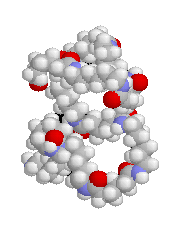Polymers in Construction: Stronger, Less heavy, and Extra Sturdy
Polymers in Construction: Stronger, Less heavy, and Extra Sturdy
Blog Article
Checking Out the Varied Applications and Advantages of Polymers in Different Industries
Polymers, with their diverse array of residential or commercial properties and functionalities, have actually become indispensable in numerous markets, each gaining special benefits from their application. From boosting safety and efficiency in the automobile field to reinventing medical tools in the healthcare sector, polymers play a critical duty.
Automotive Market Applications
Polymers play a critical role in boosting the efficiency and resilience of numerous components within the automobile field. One prominent use of polymers in the auto market is in the production of light-weight components.

Healthcare Sector Benefits
In numerous medical care applications, the benefits of utilizing polymers are widely recognized for their diverse range of useful properties. Polymers play a vital function in the health care market because of their adaptability, biocompatibility, and cost-effectiveness. Among the main advantages of polymers in health care is their capability to be tailored to particular demands, such as flexibility, toughness, and biodegradability, making them suitable for a vast array of clinical applications.
Polymer-based products are thoroughly made use of in medical gadgets, such as catheters, implants, prosthetics, and drug delivery systems, as a result of their biocompatibility and capacity to simulate natural tissues. These products can lower the risk of allergies or denials, improving client safety and outcomes. In addition, polymers are light-weight, making them appropriate for wearable medical tools and making certain person comfort.
Moreover, polymers allow the advancement of innovative therapy techniques, such as hydrogels for tissue engineering and nanocomposites for targeted drug delivery. Their simplicity of processing and sanitation makes them necessary for preserving high requirements of hygiene in medical care settings. Overall, the varied advantages of polymers contribute dramatically to improvements in clinical innovation and client care.
Ecological Advantages of Polymers

Additionally, polymers can contribute to power financial savings due to their light-weight nature. In industries such as transportation, light-weight polymer products can help reduce fuel i was reading this consumption and greenhouse gas discharges. Additionally, polymers can enable the growth of energy-efficient products such as insulation materials that boost power conservation in buildings.
In addition, polymers play an important function in decreasing water air pollution. The usage of polymer-based filtration systems can properly remove toxins and pollutants from wastewater, guarding water resources and environments. Generally, the environmental benefits of polymers make them useful assets in advertising sustainability and green practices across numerous markets.
Polymers in Electronic Devices and Innovation
Considering the raising demand for ingenious and lasting services in modern sectors, the combination of innovative polymer innovations in the world of electronics and modern technology has actually emerged as a crucial approach for driving performance and efficiency. Polymers have actually revolutionized the electronic devices market by making it possible for the manufacturing of lighter, more flexible, and durable electronic tools. From smart devices to look at this site clinical tools, polymers play a vital duty in improving item style and capability.
One considerable benefit of polymers in electronic devices is their shielding residential properties, which aid shield delicate electronic elements from environmental aspects and electric disturbance. visit In addition, polymers are necessary in the development of flexible displays, wearable innovation, and printed electronic devices, supplying limitless possibilities for creating wise and interconnected devices.
Additionally, the usage of polymers in electronic packaging has actually resulted in developments in miniaturization and thermal monitoring, improving the general efficiency and reliability of digital systems. As innovation continues to develop, the convenience and flexibility of polymers will undoubtedly drive even more innovation in the electronic devices sector, forming the future of modern technology.
Role of Polymers in Construction and Framework
The combination of innovative polymer products in building and construction and infrastructure jobs has revolutionized the means frameworks are created and integrated in modern-day times. Polymers offer countless advantages in the construction sector because of their convenience, sturdiness, and cost-effectiveness. One essential function of polymers in building is their use in finishes and sealers, offering security versus ecological aspects such as moisture, UV radiation, and corrosion. Furthermore, polymers are used in the production of light-weight and high-strength composite products, improving the structural stability of buildings while reducing overall weight.
Additionally, polymers play a crucial duty in lasting building and construction practices by allowing the advancement of energy-efficient frameworks. Insulating materials made from polymers aid manage interior temperatures, minimizing the demand for home heating and cooling down systems and ultimately decreasing energy usage. Furthermore, the usage of polymer-based compounds in infrastructure projects such as bridges and roads enhances their durability and reduces upkeep costs. Generally, the incorporation of polymers in building and construction and facilities displays their significant influence on modern-day design practices.
Conclusion
To conclude, polymers play a vital duty in numerous industries such as automotive, healthcare, environmental, electronics, and building. Their flexible properties make them valuable in creating innovative services and products. From enhancing fuel effectiveness in automobiles to improving medical gadgets, polymers provide various advantages. In addition, their impact on reducing waste and advertising sustainability highlights their relevance in modern-day applications. The extensive use polymers demonstrates their significant payment to progressing innovation and enhancing high quality of life.
Report this page